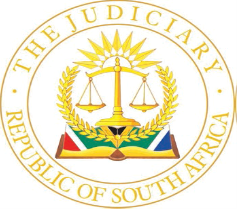
IN THE HIGH COURT OF SOUTH AFRICA
(EASTERN CAPE DIVISION, MTHATHA)
NOT REPORTABLE
Case no: 3575/2021
In the matter between:
NKOSINATHI SIGCAU Applicant / Plaintiff
and
THE MEMBER OF THE EXECUTIVE COUNCIL: First Respondent / Defendant
DEPARTMENT OF CO-OPERATIVE
GOVERNANCE AND TRADITIONAL AFFAIRS
THE PREMIER, EASTERN CAPE PROVINCE Second Respondent / Defendant
____________________________________________________________________
JUDGMENT - APPLICATION FOR LEAVE TO APPEAL
___________________________________________________________________
Govindjee J
[1] The applicant approached the court seeking the following relief:
‘1. That the first respondent be and is hereby prohibited from removing the applicant as the headman of Nqabara Administrative Area, Dutywa at the instance of the alleged Ngcweleshe Royal Family in terms of a complaint encapsulated in a letter dated 9th April 2021;
2. That the applicant’s appointment as a headman is declared to be permanent with effect from the 1st day of March 2000.’
[2] The application was dismissed with costs, prompting the present application for leave to appeal.
[3] In essence, and following consideration of the applicable legislative framework, the court held that the applicant had failed to establish the requirements for a final interdict. In particular, a clear right had not been established. This was, inter alia, because the MEC was entitled, in terms of provincial legislation, to enquire into the applicant’s status as a headman. Withdrawal of recognition was also possible. A ‘clear right’ to be considered the permanent headman was, in those circumstances, not established.
[4] The applicant failed on the other legs of the test too. His application was considered to be heavy-handed and premature, particularly considering that it was open to him to simply respond to the MEC’s letter received, advancing the facts in support of his position. In context, there was no ‘injury actually committed or reasonably apprehended’. The requirement of ‘absence of any other satisfactory remedy available to the applicant’ was also not met.
[5] As for the declaratory relief sought, the court considered various factors and authorities in concluding that such relief would be inappropriate in the circumstances. The Eastern Cape legislation (‘the Eastern Cape Traditional Leadership and Governance Act, 2017) provided for review of acting appointments of traditional leaders every three years, as well as for enquiry into a headman’s appointment and recognition. This reality was held to have important consequences for deciding whether to exercise a discretion in making a declaratory order of a permanent nature. Such an order was considered to be practically insignificant, considering the legislation. Coupled with other factors, the declaration sought was inapposite.
[6] It must be noted, for the sake of completeness, that although an application for leave to appeal was filed timeously, an incorrect case number had been cited, resulting in the lengthy delay in this application being placed before me. Once the file had been located, and matched to the application, arrangements were made to attend to the application as swiftly as possible. The matter was seemingly not pressed during the intervening period of almost 12 months.
[7] It is difficult to glean the basis for the application for leave to appeal. The applicant offers mainly an exposition of s 24 of the Eastern Cape legislation, and reiterates the relief he had hoped for by launching the application. Of importance is that there is little engagement with the ratio of the court’s decision, particularly in respect of the second and third legs of the requirements for the interdict, as well as in respect of the refusal to issue a declarator. The points raised in the application for leave to appeal have been considered and addressed in the judgment. The application fails to explain how the court erred in coming to its conclusion in respect of both the interdictory and / or declaratory relief that the applicant sought.
[8] In those circumstances, it cannot be said that an appeal would have a reasonable prospect of success and there appears to be no sound and rational basis for granting leave. There are also no other compelling reasons why the appeal should be heard.
Order
[9] The following order is issued:
1. The application for leave to appeal is dismissed with costs.
_________________________
A GOVINDJEE
JUDGE OF THE HIGH COURT
Heard: 30 November 2023
Delivered: 05 December 2023
Appearances:
Attorney for the Applicant / Plaintiff: Mr SC Vutula
Mthatha
Instructed by: SC Vutula & Co
Applicant / Plaintiff’s Attorneys
17 Madeira Street
Mthatha
Counsel for the Respondent / Defendant: Adv LD Halam
Mthatha Chambers
Instructed by: The State Attorney
Respondent’s / Defendant’s Attorney
Broadcast House
94 Sission Street
Mthatha
